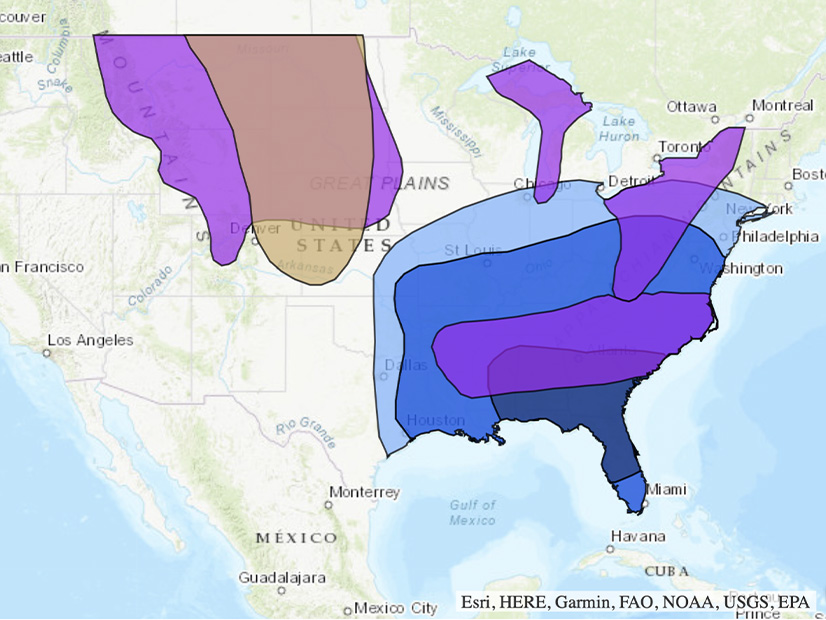
NERC has urged power grid operators to take action to “ensure the highest levels of reliability” ahead of a wave of extreme winter weather predicted to blanket much of North America in the first weeks of January.
“The reliability of the North American electric grid is the key priority for NERC — we know 400 million North Americans are counting on an uninterrupted supply of electricity to support our way of life,” NERC said.
NERC noted in its release the issue of a hazards outlook by the National Weather Service forecasting “extremely low temperatures, damaging winds, snow and freezing rain” across the U.S. East Coast, Southeast and Midwest that could lead to “a series of successive events that could create challenges for those reliant on inventoried fuels.” The ERO said it’s particularly concerned about the supply of natural gas, which is used for electric generation and home heating.
NWS’s most recent outlook, covering the week of Jan. 10-16, is consistent with these warnings, forecasting a combination of low pressure in the eastern U.S. and high pressure in the West and Greenland that likely create a “deep trough” to “funnel Arctic air into the Lower 48 east of the Rockies.” The outlook said there is a greater than 60% chance of “much below-normal temperatures” for much of the Southeastern U.S. on Jan. 9-11, meaning daily minimum temperatures that are less than the 15th percentile and near or below freezing.
Even Florida faces the potential of a hard freeze, NWS said. Low pressure conditions also could lead to “widespread breezy conditions and very low wind chills,” with at least a 20% chance of wind speeds passing the 85th percentile over the Northern and Central Plains Jan. 10-14.
Heavy snow also is possible across the central and eastern Continental U.S. in the middle of the covered week, and even in the Southeast — along with other precipitation types — due to moisture from the Gulf of Mexico. NWS noted that earlier outlooks predicted moderate risks of heavy snow between Jan. 9 and 15, but this has been changed to a slight risk. The change is due partly to lower predicted snowfall totals, but also because models indicate “some of the anticipated heavy snow” shifting into the preceding week.
In a video statement, NERC CEO Jim Robb said the coming cold weather could represent a “major” challenge to grid reliability and reiterated the ERO’s call for action from the industry.
“While forecasts are forecasts and undoubtedly contain error, these systems do seem to have the potential to bring a prolonged period of very cold weather — as cold as single digit temperatures in the U.S. South,” Robb said. “As a result, I’m asking everyone in the electricity supply chain … to take all appropriate actions to ensure that we can maintain an uninterrupted supply of electricity to customers. … The actions you take now may very well help us avoid the consequences of events such as we saw in Texas in 2021 and the Mid-Atlantic in 2022.”
Winter weather has been a growing source of concern for NERC and the rest of the ERO, with the organization warning in this year’s Winter Reliability Assessment that all or part of multiple regions face elevated risk of energy shortfalls from extreme winter conditions. NERC said rising demand and retirements of thermal generation capacity contribute to slimmer reserve margins across the continent. (See NERC Sees ‘Reasons for Optimism’ as Winter Approaches.)



